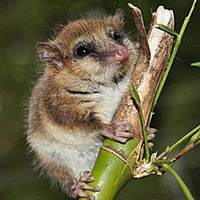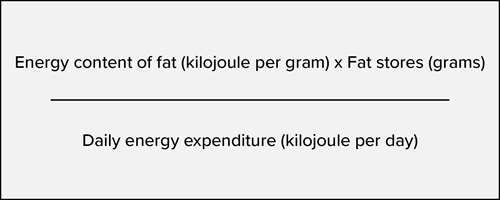- Membership & Community
-
Publications & News
- Physiology Journals
-
Newsroom
-
The Physiologist Magazine
- 2019
- 2020
- 2021
- 2022
- 2023
- 2024
-
In Depth
- In Depth—The Bear Necessities
- In Depth: Understanding Circadian Rhythms
- In Depth: Understanding Data
- In Depth: Exercise Physiology: Take Your Medicine at the Gym
- In Depth: Neurodegenerative Disorders
- Imaging Methods Unveil the Invisible
- Rewiring the Brain: Breakthroughs in Neural Therapy
- What’s Coming Next for GLP-1 and Metabolic Disease Treatment
- Understanding the Effects of Maternal Exercise
- How Muscles May Hold Cues to Better Sleep
- The Science Behind Breathwork and Mental Health
-
Mentoring Forum
- Net Worth
- Take Care
- You … In Charge
- Work. It. Out.
- Working Off-site
- Location, Location, Location?
- Student Support
- Progressing to Postdoc
- Relationship Building
- Let’s Get It Started
- What Do We Value?
- It’s a Postdoc Life
- Coronavirus Contributions
- Creative Communications
- Selection Process
- Conference Connections
- Postdoc Appreciation
- Research Rewards
- Focus on Teaching
- Industry Insights
- Balance Beam
- Post Postdoc
- If You Build It
- Talk It Through
- Forward Bound
- I’ve Earned My PhD. Now What?
- University Life
- Tips for Trainees
- Time Travel
- Prepare Now for the Career You Want
- Landing a Postdoctoral Researcher Position
- Becoming a Physician-Scientist
- Mastering the Art of Science Communication
- Setting Yourself Up for Success in the Lab
- From Postdoc to Professor: Key Strategies for Success
- How to Stay Motivated in Challenging Times
- Staying Motivated Throughout Your Science Career
- Managing Stress and Workload During Your PhD
- Stay Passionate About Your Physiology Career
-
Policy IQ
- Policy IQ—2023 in Review: How APS Advocated on Behalf of Physiologists
- Policy IQ—Supporting Equitable Research
- NIH's Road Map to a Better Postdoc Experience
- The Career Path to Science Advocacy
- Culture of Safety: Stopping Sexual Misconduct
- Physiologists Return to Capitol Hill
- Tips for Scientists to Communicate about Animal Research
- Science Advocacy in a New Political Landscape
- Tips for Making the Call to Congress
- Science Spending Is an Investment
- Advocacy Up Close and Personal
- How Animal Research Advances Physiology and Medicine
-
Publish with Polish
- Publish with Polish
- The Layers of Open Science
- Take Your Content From Meeting to Manuscript
- APS Journals to Highlight Women’s Health Research
- What Subscribe to Open Means for APS Members
- The 5 Pillars of Publish with Purpose
- 3 Types of Metadata Researchers Should Know About
- Navigating Open Access and New Licensing Options
- Journal Manuscript Prep Made Easy
- How to Navigate Public Access Requirements
- Ensuring Public Trust in Publishing
- Improve Your Scientific Figures With APS and BioRender
-
Under the Microscope
- Equine Inspiration
- Inquiring Minds
- The Power of Teaching
- The Love of Physiology
- Understanding Women's Physiology Across the Lifespan
- Studying Human Health in Extreme Environments
- Advancing Kidney Health and Physiology Research
- How Gut Microbes Shape Blood Pressure and Drug Response
- Battling Malaria
- Exploring the Microbiome
- From Physics to Physiology: A Scientist's Unconventional Journey
- Mentoring Q&A
- Evolution
- Baseline by Scott Steen, CAE, FASAE
- 2025
- Find Us on Social Media
-
The Physiologist Magazine
-
Professional Development
-
Meetings & Events
-
American Physiology Summit
- #APS2024 Overview
- Abstracts
- Awards at the Summit
- Award Lectures
- Career Networking Lunch Form
- Dates and Deadlines
- Advocate for Health Research Funding
- Hotel Information
- International Travel Information for Summit Attendees
- Industry Partners
- Keynote Speaker—James Rothman, PhD
- Keynote Speaker—George Brooks, PhD, FAPS
- Keynote Speaker—Holly Ingraham, PhD
- Mobile App
- NIH and NSF Program Officer Panel Discussion Form
- Physical Poster Information
- American Physiology Summit PhysioHub
- Registration
- Section & Group Banquet Tickets
- Social Events
- Speaker Audiovisual Instructions
- Summit FAQs
- Summit Newsroom
- Travel & Transportation
- Undergraduate Program Book
- Liability Waiver
- Industry Partners
- Joseph Erlanger: Pioneering Nerve Research and APS Leadership
- 2023
- 2024
- Scientific Integrity Policy
- Exhibitor Registration Form
- Keynote Speaker Tracy L. Bale, PhD
- Keynote Speaker Jennifer Lippincott-Schwartz, PhD
- New Trends in Sex Differences and Women’s Health Research
- Control of Renal Function in Health and Disease
- Comparative Physiology Conference
- Webinars
- Related Meetings
- Future APS Conferences
- Conference Policies
-
American Physiology Summit
- APS Awards
-
Career & Professional Development
-
Career Gateway
-
Resources
- Transcript—Leading Through Conflict and Difficult Conversations
- Transcript—Managing Conflict with Colleagues
- Transcript—Leading a Team Through Conflict
- Transcript—Providing Difficult Feedback
- Transcript—Team Dynamics and Culture Primer
- Transcript—Building a Team
- Transcript—Leading a Team Assigned to You
- Transcript—Creating a Team Culture
-
Resources
- Career Navigator
- Center for Physiology Education
- Virtual Courses
- Physiology Job Board
- APS Graduate Physiology & Biomedical Science Catalog
-
Career Gateway
-
Meetings & Events
-
Advocacy & Resources
- Science Policy
-
Resources
- Researcher Resources
- Educator Resources
- Trainee Resources
- Student Resources
-
APS Graduate Physiology & Biomedical Science Catalog
- Des Moines University
- George Washington University
- Michigan State University
- New York Medical College
- Nova Southeastern University
- Pennsylvania State University
- Texas A&M University
- Texas A&M University Medical Physiology
- Stony Brook University
- University of Alabama at Birmingham
- University at Buffalo
- University of Colorado
- University of Michigan
- University of Minnesota
- University of Missouri-Biomedical Sciences
- University of Nebraska Medical Center
- University of Nevada, Reno
- University of South Carolina School of Medicine
- University of Tennessee Health Science Center (UTHSC)
- University of Texas Health Science Center
- Virginia Commonwealth University
- Wayne State University
- Physiology Department Catalog Submission Form
- Boston University
- Career Gateway
- Major Initiatives
- About APS
Monito del monte populations in Chile risk extinction in next half-century
 (San Diego) October 29, 2022—A South American marsupial with ties to an ancient line of animals may go extinct in the next half-century due to warming temperatures. Researchers from the Universidad Austral de Chile will present a mathematical model of the monito del monte’s survival predictions this week at the American Physiological Society (APS) Intersociety Meeting in Comparative Physiology: From Organism to Omics in an Uncertain World conference in San Diego.
(San Diego) October 29, 2022—A South American marsupial with ties to an ancient line of animals may go extinct in the next half-century due to warming temperatures. Researchers from the Universidad Austral de Chile will present a mathematical model of the monito del monte’s survival predictions this week at the American Physiological Society (APS) Intersociety Meeting in Comparative Physiology: From Organism to Omics in an Uncertain World conference in San Diego.
The monito del monte, native to the rainforests of South America, is a marsupial in the relict family Microbiotheriidae. These tiny animals typically weigh about 20 grams (0.7 ounce) and measure around 3 to 5 inches long. Monitos reproduce and prepare for winter hibernation during the summer. Preparation includes eating as much as possible—including fruit, insects, small birds and other dead animals—to store as body fat. Researchers estimate that monitos need to have fat reserves that are almost twice their body weight to survive the winter.
Climate change predictions show that ambient temperatures in coastal Chile will increase an estimated 36.5 degrees F over the next 50 years. This will have a large impact on the ability of the monito population to survive the winter. The warmer temperatures will cause the animals to come out of hibernation earlier than usual, and they will be unable to find food during the winter, explained Roberto Nespolo Rossi, PhD, first author of the study. Nespolo and his research team developed a mathematical model to estimate survival rates for the monito population in the advent of global warming.
The mathematical model uses an algebraic formula to connect days of winter survival with the ambient temperature. The calculations are based on the assumption that all of the monitos’ daily energy expenditure during hibernation comes from the fat stores they have accumulated during the warmer months.
The model “is one of the few predictive models built on physiological parameters, so it can be applied to other hibernators, for which there is plenty of physiological data,” Nespolo said. “Our predictions for 50 years … indicate that most coastal populations [of monitos] will go extinct,” he added. This is especially important because the monito, sometimes referred to as a “living fossil,” is the last living relative of the ancient marsupial order Microbiotheria.
NOTE TO JOURNALISTS: The Comparative Physiology: From Organism to Omics in an Uncertain World conference will be held October 28–31 in San Diego. To schedule an interview with the researchers, conference organizers or presenters, contact APS Media Relations or call 301.634.7314. Find more highlights in our Newsroom.
Physiology is a broad area of scientific inquiry that focuses on how molecules, cells, tissues and organs function in health and disease. The American Physiological Society connects a global, multidisciplinary community of more than 10,000 biomedical scientists and educators as part of its mission to advance scientific discovery, understand life and improve health. The Society drives collaboration and spotlights scientific discoveries through its 16 scholarly journals and programming that support researchers and educators in their work.
Related Content
- APS Selects JPA Health to Lead Strategic Communications Campaign Elevating Physiology’s Vital Role
- Mom’s Pregnancy Diet May Disrupt Children’s Gut Health
- American Physiological Society Announces 2025 Award Recipients
- American Physiological Society Launches National Campaign to Champion Physiology’s Impact on Biomedical Discovery
- American Physiological Society to Assume Publishing Operations for Function in 2026
- Scott Steen to Retire as CEO of the American Physiological Society
- Drinking Less Fluids May Increase Stress Hormone Levels
 Media Inquiries
Media Inquiries
Contact the Communications Department to:
- Interview a scientific expert.
- Request a study or journal article.
- Get background and resources on physiology.
Email communications@physiology.org or call 301.634.7314.


